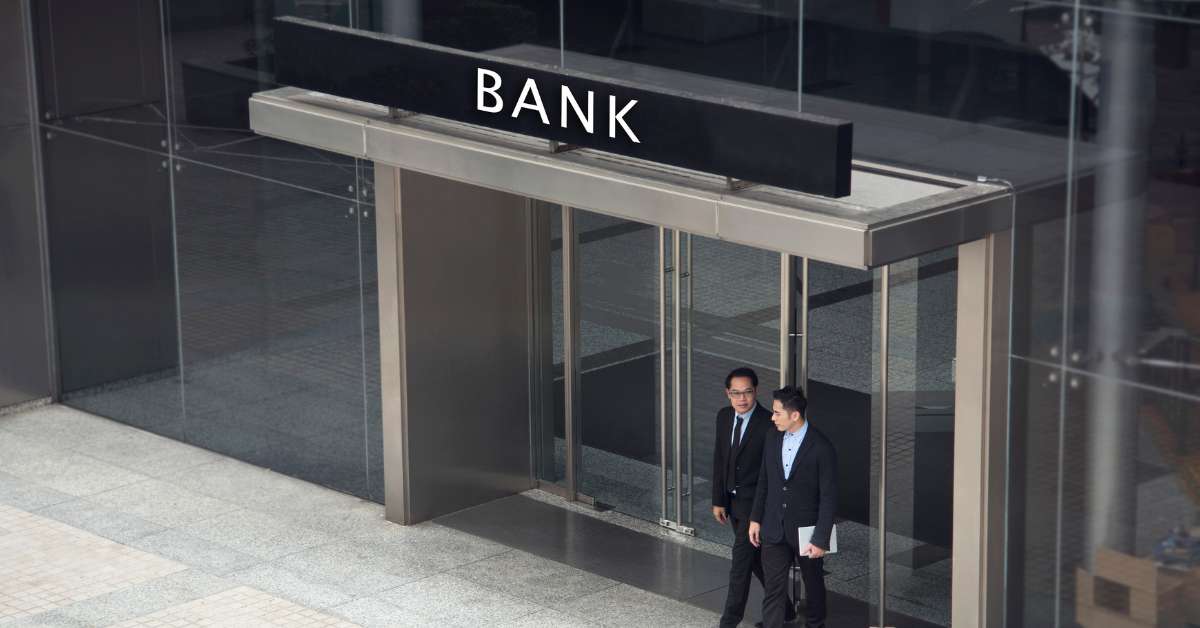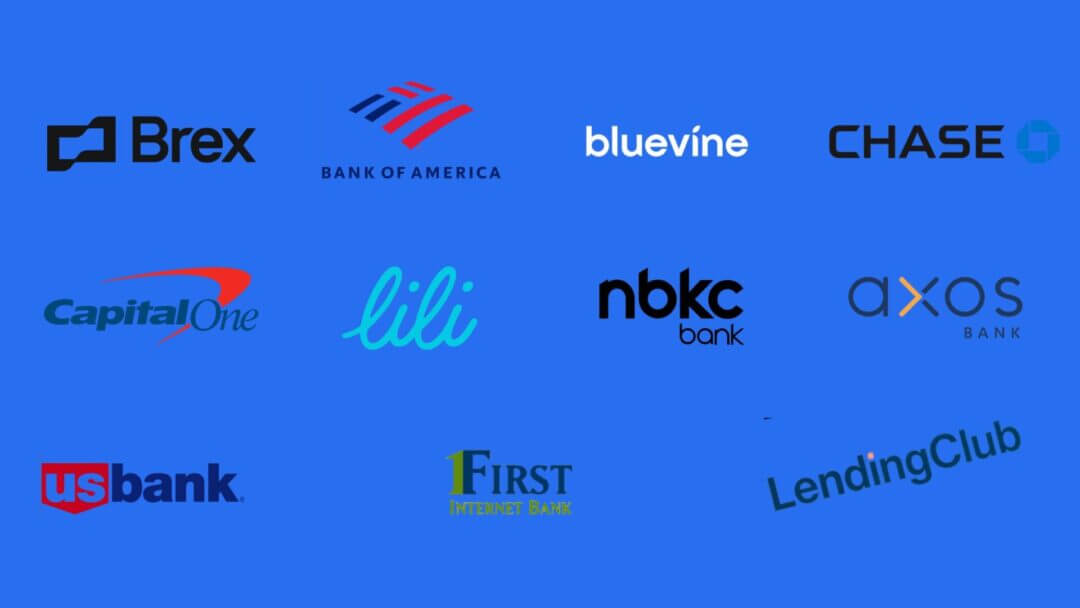
Looking for the perfect bank for your LLC? In this guide, we’ve compiled a list of the 11 best banks for LLCs to help you find your perfect match.
Whether you’re seeking tailored business banking solutions, competitive interest rates, or comprehensive financial services, these banks have got you covered. Read on to explore the best banks for LLCs and find the one that suits you best.
Why It’s Important to Choose the Best Bank for Your LLC?
There is a plethora of reasons why it’s important to choose the best bank for your LLC. And when it comes to the health of your finances, this is something you won’t want to neglect.
Here are some key reasons why it’s important to choose the best bank for your business:
- Personal liability protection: Having a separate bank account will allow you to differentiate your personal finances so that in the event of a legal bind, your personal assets are not in jeopardy.
- Professional image: Whether it’s a business partner, customer, or the IRS, having a business bank account gives you the appearance of a serious business. Would you want to keep doing business with a company that pulled out a shoe box for every transaction?
- Capital loans: Banks can help get your business off the ground or keep it afloat by asking for a business loan. And if you have good credit, borrowing some cash may be a viable option to invest in helping the growth of your company.
- Low fees: Some banks charge high-interest rates, which can dampen your cash flow. That’s why it’s crucial to choose a bank that suits the specific needs of your business so you don’t get bogged down with hidden fees that have nothing to do with your business transactions.
Regardless of the reason, it’s paramount that you choose a bank that correlates to the needs of your business. That said, let’s take a look at the 11 best banks you can choose from for your LLC.
11 Choices for the Best Bank for LLC

Once you have come to terms with the idea that a cash-only business is not the best option for expanding your business, here are some of the best banks for your LLC—along with their advantages and limitations.
1. Brex
Brex is the modern finance platform used by 1 in 3 US startups that offers integrated business banking, corporate cards, bill pay, travel booking, and expense management.
Best for:
- Fast-growing LLCs and startups that need quick access to checking, savings, and treasury accounts that earn high yields from day one.
- Scaling businesses looking to integrate banking with corporate cards and expense management.
- Global businesses that require multi-currency support and payment capabilities.
- Orgs with complex financial workflows looking to connect payroll, ERP, and HRIS tools and automate accounting.
Advantages:
- Industry-leading treasury yields with same-hour liquidity and no minimum balance requirements
- Up to $6 million in FDIC protection through a network of program banks
- Integrated invoicing and accounts payable support payments in 60+ currencies
- Physical and virtual corporate credit cards
- AI-powered spend controls, approval workflows, and expense categorization
Limitations:
- No physical branch locations for in-person banking
- Limited appeal for businesses requiring only basic banking services
- Not a good fit for freelancers or solo entrepreneurs
2. Bank of America
Bank of America is a full-service bank that offers a variety of personal and business banking products and services.
Best for:
- Individuals seeking convenient access to banking services with Bank of America’s extensive branch and ATM network.
- Customers in need of a wide range of financial products and services, including personal and business banking, mortgages, loans, credit cards, and investment options.
- Those who value the convenience of online and mobile banking platforms enabling them to manage their accounts and perform transactions with ease.
- Reward enthusiasts looking to earn points, cashback, or other benefits through Bank of America’s rewards programs and selection of credit cards.
Advantages:
- Large branch and ATM network
- Extensive online and mobile banking options
- Accessibility
- Credit and debit card options
- Investment and wealth management services
Limitations:
- High fees
- Inconsistent customer service
- Limited account options
3. Bluevine
BlueVine is an online financial technology company that offers a range of banking and financial services for small businesses.
Best for:
- Businesses in need of flexible financing options and quick access to funds.
- Companies looking for invoice factoring services to improve cash flow and manage working capital.
- Entrepreneurs who prefer a streamlined online banking experience with user-friendly digital tools for financial management.
- Small businesses seeking a simple and straightforward application process with minimal paperwork and quick funding decisions.
Advantages:
- Business banking solutions
- Fast and streamlined application process
- Flexible financing options
- Competitive interest rates and fees
- User-friendly online platform
Limitations:
- Limited product offerings
- Eligibility requirements
- Lack of physical branches
4. Capital One
Capital One is a well-known financial institution offering a range of banking products and services.
Best for:
- Individuals and businesses seeking diverse banking services, including checking and savings accounts, credit cards, loans, and investment options.
- Customers looking for user-friendly online and mobile banking platforms with robust features and tools.
- Travel enthusiasts interested in credit cards with travel rewards and benefits.
- Those seeking a reputable and established bank with a nationwide presence.
Advantages:
- Extensive product offerings
- Online and mobile banking convenience
- Travel rewards and benefits
- Nationwide presence
Limitations:
- Potential for fees
- Limited branch presence in certain regions
- Customer service concerns
5. Chase Business Complete Banking℠
Chase Business Complete Banking℠ is a business banking solution offered by Chase, one of the largest banks in the United States.
Best for:
- Small and medium-sized businesses looking for comprehensive banking services and features to manage their finances effectively.
- Businesses seeking a well-established and reputable banking partner with a nationwide presence.
- Customers who prefer a traditional bank with both online and in-person banking options.
Advantages:
- Comprehensive banking services
- Accessible banking network
- Online and mobile banking tools
- Business support and resources
Limitations:
- Potential fees
- Customer service challenges
- Less specialized than boutique business banks
6. First Internet Bank
First Internet Bank is an online bank that offers a range of banking services to individuals and businesses.
Best for:
- Individuals and businesses looking for a fully online banking experience.
- Customers seeking competitive interest rates on savings and deposit accounts.
- Those who value convenience and prefer managing their finances through online and mobile platforms.
Advantages:
- Competitive interest rates
- Wide range of banking services
- Convenient online and mobile banking
- 24/7 customer support
Limitations:
- No physical branch locations
- Limited ATM network
- Possible tech limitations
7. LendingClub
LendingClub is an online lending platform that connects borrowers with investors, offering personal loans, business loans, and auto refinancing.
Best for:
- Individuals and small businesses seeking personal loans, debt consolidation, or business financing.
- Borrowers who prefer a streamlined online application process and access to competitive interest rates.
- Investors interested in lending money to borrowers for potential returns.
Advantages:
- Wide range of loan options
- Competitive interest rates
- Streamlined online application
- Fast funding process
- Investment opportunities
Limitations:
- Credit requirements
- Origination and servicing fees
- Investor risk
- Availability limitations
8. Lili
Lili is a mobile banking platform designed specifically for freelancers and independent workers.
Best for:
- Freelancers, gig workers, and independent contractors who need banking services tailored to their unique financial needs.
- Individuals who want to separate their personal and business finances effectively.
- Customers seeking a user-friendly mobile banking experience with specialized features for freelancers.
Advantages:
- Business banking features
- Seamless integration with popular gig economy platforms
- Real-time expense tracking
- No account fees
- Quick and easy account setup
Limitations:
- Limited banking services
- Limited branch access
- Restricted customer base
9. NBKC bank
NBKC Bank is a digital bank that offers a range of banking products and services.
Best for:
- Individuals and businesses seeking a fully digital banking experience with comprehensive services.
- Customers looking for competitive interest rates on deposit accounts and loans.
- Those who value a transparent fee structure and minimal fees.
Advantages:
- Online and mobile banking convenience
- Competitive interest rates
- Transparent fee structure
- Variety of banking products
- Mortgage lending expertise
Limitations:
- Limited physical presence
- Limited ATM network
- Availability restrictions
10. Axos Bank®
Axos Bank is an online-only bank that provides a wide range of banking products and services for individuals, businesses, and institutions.
Best for:
- Convenient and efficient online banking experience, empowering customers to effortlessly manage their accounts, conduct transactions, and access a wide range of banking services.
- Savvy savers seeking high-yield savings accounts with competitive interest rates, maximizing their potential to grow their savings.
- Individuals and businesses alike, as the bank caters to both personal and business banking needs, offering a comprehensive suite of services tailored to each.
- Homeowners or prospective buyers looking for mortgage lending options to finance or refinance their homes.
Advantages:
- Competitive interest rates
- Low fees
- Wide range of products and services
- High-rated customer service
Limitations:
- Requirements for account opening
- Limited physical branches
- Limited ATM network
11. U.S. Bank
U.S. Bank is a well-established financial institution in the United States, offering a wide range of banking products and services.
Best for:
- Individuals and businesses seeking comprehensive banking solutions, including checking accounts, savings accounts, loans, credit cards, mortgages, and investment services.
- Customers who value the convenience of a large branch and ATM network.
- Those looking for a reputable and established bank with a wide range of financial offerings.
Advantages:
- Diverse product offerings
- Extensive branch and ATM network
- Online and mobile banking options
- Reward programs
- Financial expertise
Limitations:
- Potential fees
- Customer service challenges
- Strict eligibility requirements
What to Consider When Choosing a Bank for Your LLC?
It can be exciting to look around and find out which bank will best help grow your business. But it’s wise to read between the lines because banks can have a number of hidden terms and regulations that can affect your finances. Here are the top five points to consider when choosing a bank for your LLC.
1. Account features and services: Evaluate the bank’s offerings to ensure they align with your LLC’s needs, such as business checking accounts, online/mobile banking, and merchant services.
2. Fees and costs: Compare fee structures, including monthly maintenance fees, transaction fees, and overdraft charges.
3. Business lending and credit options: Consider the bank’s loans, lines of credit, and financing options like interest rates, terms, and flexibility.
4. Relationship and customer service: Prioritize banks known for excellent customer support and dedicated business banking representatives.
5. Security and technology: Choose a bank with robust security measures, such as encryption and multi-factor authentication, and user-friendly technology.
How to Open a Business Checking Account?

Once you have chosen the best bank for your business, it’s time to officially open a business checking account. Here’s how:
Step 1: Select a Bank:
Investigate various banking institutions, compare their products, charges, and account characteristics, and evaluate their relevance to your business requirements. Consider aspects like the convenience of branch locations, online banking facilities, and the reputation of their customer service.
Step 2: Compile Necessary Documents:
Before heading to the bank, assemble the typically required documentation to set up a business checking account, which may encompass:
- Business establishment papers like Articles of Organization or partnership agreements — contingent on your business structure.
- Employer Identification Number (EIN) from the IRS, which is generally required for business accounts.
- Business licenses or permits relevant to your specific industry or locale.
- Personal identification such as a driver’s license or passport, along with those of any account-authorized signatories.
- Proof of your business’s physical address, such as utility bills or a lease contract.
Step 3: Book an Appointment or Visit the Bank:
Reach out to your chosen bank to arrange an appointment or walk into a branch during operational hours. It’s advisable to call ahead to confirm the precise documents needed.
Step 4: Fill Out the Application:
Sit down with a bank representative and fill out the business checking account application form. Provide the necessary documentation, including business formation papers, EIN, personal identification, and address verification.
Step 5: Make an Initial Deposit:
Depending on the bank’s policy, you may need to make an initial deposit into the account. Ensure you can meet any minimum deposit requirements the bank may have.
Step 6: Go Through Terms and Charges:
Review the terms and conditions carefully, including any associated fees, policies on overdrafts, and transaction limits. Don’t hesitate to ask for explanations on any unclear terms.
Step 7: Obtain Account Information:
After processing and approving your application, the bank will supply your account details, such as account and routing numbers. You may also receive associated checks and debit cards.
Step 8: Enable Online Banking:
Utilize the online banking services provided by the bank. Register for online access and familiarize yourself with its features like transaction viewing, fund transfers, and account statement access.
Remember that requirements may vary slightly based on the bank and your business situation. Therefore, you should verify with your chosen bank to ensure you possess all the required documentation for a smooth account opening.
Fortify Your Finances
Choosing the right bank for your LLC is a critical decision that will have a significant impact on the financial health of your business.
Among the most important factors you need to consider are account features, fees, commercial lending options, customer service, and security measures. This is why it’s so important to stay on top of your finances — to keep you organized and legally compliant.
Our bookkeeping services can do just that! We ensure your finances are updated regularly and provide headache-free financial management. Contact doola today for a free consultation!
FAQs
Which banks are best for single-member LLCs?
The best banks for single-member LLCs can vary based on individual needs, but some popular options include Capital One, Chase, and Bank of America.
How much is the usual deposit for checking accounts?
The usual deposit for opening a checking account can range from $25 to $1,500, depending on the bank and type of account.
Should you open several checking accounts for your LLC?
It is not necessary to open multiple checking accounts for your LLC unless you have specific reasons, such as segregating funds for different purposes or managing multiple business entities.




